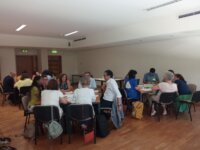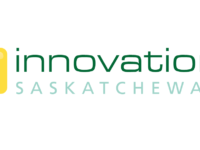The Seoul Outdoor Library was created to meet the needs of citizens for their healing and rest in a safe space since COVID-19. As a new approach where the concept of a library space is expanded from being inside a building to outdoors, a space is created to share culture with multiple generations by offering various services for citizens in collaboration with the local community. It is an innovative model where a library is shifted to a social place in which anyone could enjoy the library.
Innovation Tag: Citizen Engagement
The organization has first piloted and then fully implemented a school educational program on consumer protection, "Young Consumers. The basic rights". The program aims at a proactive approach and early building of awareness on sustainable consumption and consumer rights, include those rights' ecosystem of protection and the milieu within which they are exercised. This innovation reaches out to its target-group and capitalizes on the benefits of physical presence as well as the students' own…
Case Study
Monitoring and participatory evaluation of the National Strategy to Combat Poverty 2021-2030 (ENCP)

As part of the National Strategy to Combat Poverty (ENCP), PlanAPP is piloting a participatory monitoring and evaluation (M&E) model. This model involves designing mechanisms for participation in collaboration with social sector organisations. Following this, individuals living in poverty will participate in the M&E process of the ENCP from its inception. The goal is to enhance the development of well-informed and contextually relevant public policies, foster a culture of participation, and…
In response to Innovation Saskatchewan's call for public sector challenges through its Innovation Challenge, the Ministry of Environment partnered with Prairie Robotics, a Regina-based AI startup, to tackle waste audits. Their AI-powered solution automates waste audit processes, cutting down time, costs, and resources previously required for manual audits. The technology identifies contaminants in recycling streams and tailors educational materials to individual households, enhancing engagement,…
The project reduces the digital divide and accessibility problems for people with special needs and simplifies technology. It is a layer of artificial intelligence (AL21) that facilitates navigation and assists in carrying out electronic procedures, together with the deployment of cyberkiosks that allow access to technology free of charge and Smart Centres to train citizens in digital skills. The Public Procurement of Innovation methodology is used in its implementation.
The Autobús Legislativo: digital legislative files is a unique technological innovation in Mexico with the objective of making available to citizens all information related to a legislative bill and its drafting process in a single digital platform. In this way citizens are informed on the "route" and "itinerary" of legislation, from its conception until it is approved.
"Påkobla Hjelpemiddel" (PH) is a digital solution developed from a digitalization department in Kristiansund Municipality, Norway. This innovative system addresses challenges in inventory, distribution, and logistics, improving the efficiency of delivering assistive devices. PH will be completed as a system in the end of 2024, but is today used by four municipalities that are a part of the innovation.
The National Injury Insurance Agency Queensland in partnership with Queensland University of Technology is revolutionising support for those severely injured in accidents by offering a digital platform for easier access to services and self-management. This initiative provides a seamless, empowering user experience, enhancing independence and trust in public support systems. It's innovative because it transforms traditional, paper-based processes into an accessible, efficient digital solution.
A partnership of the University of Cape Town's Design Thinking School and the Western Cape Public Library Service sought to reconfigure the service delivery model of public libraries to draw in South Africa's young adult demographic. A pilot in Wellington (Cape Winelands) yielded three user-tested solutions to improve the library services model and effectively respond to the often neglected needs of young people not in employment, education, or training (NEETs).
This is a large-scale national initiative employing artificial intelligence techniques to proactively predict which patients are most likely to miss their appointments in outpatient clinics.
It uses machine learning techniques to process, analyse, and train data in the electronic medical record (EMR) system, encompassing patient, clinic, and appointment history.
The no-show rate at KAMC has decreased by 10%.


